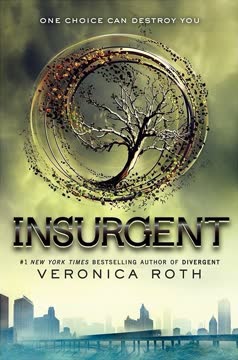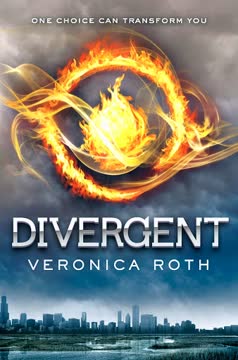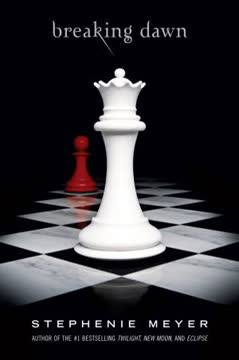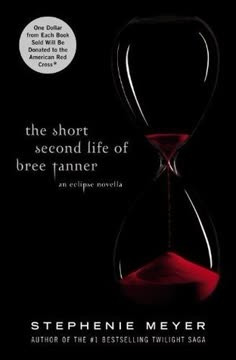Plot Summary
Invasion of the Mind
Earth has been overtaken by an alien species known as Souls, who invade and possess the bodies of humans, erasing their hosts' consciousness. The story begins with the insertion of a Soul called Wanderer into the body of Melanie Stryder, a captured member of the dwindling human resistance. Wanderer is an experienced Soul, having lived on many worlds, but is warned that humans are unusually strong-willed. The process is meant to be seamless, but as Wanderer awakens in her new host, she is immediately confronted by the unexpected: Melanie's consciousness refuses to fade, and her memories and emotions remain fiercely alive, setting the stage for a battle of wills within a single body.
Two Souls, One Body
Wanderer's initial task is to access Melanie's memories to help the alien authorities locate the remaining human resistance. However, Melanie's presence is not just a passive echo—she actively resists, hiding critical information and bombarding Wanderer with vivid memories of her loved ones, especially her brother Jamie and her partner Jared. The two minds clash, but over time, a reluctant partnership forms. Melanie's emotions and memories begin to influence Wanderer, blurring the line between host and invader. Wanderer finds herself empathizing with Melanie's pain and longing, and the two begin to share a common goal: to protect the people Melanie loves.
The Human Resistance
Haunted by Melanie's memories and unable to betray her, Wanderer becomes increasingly alienated from her own kind. The Seeker, a relentless Soul tasked with hunting down humans, grows suspicious of Wanderer's lack of progress and emotional instability. Under pressure, Wanderer decides to escape the Souls' society and seek out the human resistance, driven by Melanie's love for her family and her own growing sense of compassion. The journey is perilous, as Wanderer is hunted by both the Seeker and the Souls, and must navigate a world where she is hated by humans and mistrusted by her own species.
Melanie's Memories
As Wanderer and Melanie travel through the desert, the memories of Melanie's life become increasingly vivid and influential. Wanderer experiences Melanie's love for Jared and Jamie as if it were her own, and the pain of their separation becomes unbearable. The two minds, once adversaries, become allies, united by a desperate hope to find the people they both now love. The journey is physically and emotionally grueling, pushing Wanderer to the brink of death, but also forging an unbreakable bond between Soul and host.
The Seeker's Pursuit
The Seeker, obsessed with capturing the human resistance and suspicious of Wanderer's motives, becomes a constant threat. As Wanderer and Melanie draw closer to the hidden enclave of humans, the Seeker's pursuit intensifies, forcing them to take greater risks. The tension between Wanderer's alien nature and her growing humanity is mirrored by the external danger, as she is hunted by those who should be her allies and feared by those she wishes to help.
Escape to the Desert
Guided by cryptic clues from Melanie's memories, Wanderer braves the unforgiving desert in search of Melanie's uncle Jeb, who is rumored to shelter human survivors. The journey is nearly fatal; Wanderer is dehydrated, starving, and on the verge of death when she is discovered by Jeb. Her arrival at the human enclave is met with suspicion and hostility, as the humans see only an enemy in their midst. Wanderer's survival depends on Jeb's curiosity and compassion, and on her ability to convince the humans that she is not a threat.
Discovery of the Caves
Wanderer is brought into the humans' underground sanctuary—a network of caves where the last remnants of humanity survive. She is treated as a prisoner, subjected to violence and threats, and forced to prove her intentions. The humans, traumatized by the loss of their world, are divided between those who want to kill her and those who are willing to listen. Wanderer's unique situation—her coexistence with Melanie—becomes both her curse and her only hope for acceptance.
Among the Humans
Over time, Wanderer's actions and her obvious suffering convince some of the humans, including Jeb, Jamie, and eventually Jared, that she is not like the other Souls. She is given the nickname "Wanda" and slowly earns a place in the community, working alongside the humans and sharing her knowledge. Her relationship with Jamie deepens into a maternal bond, and her feelings for Jared become more complicated as she navigates the tangled emotions of love, jealousy, and self-sacrifice. The humans remain divided, and Wanda's presence continues to provoke fear and anger in many.
Love and Divided Loyalties
Wanda's internal struggle intensifies as she falls in love with the humans around her, especially Jamie and Jared, but also forms a deep connection with Ian, one of her former tormentors. The love triangle is complicated by the fact that Melanie's consciousness is still present, and her feelings for Jared are as strong as ever. Wanda is forced to confront the reality that she can never truly have what she wants without destroying Melanie, and that her very existence is a threat to the people she loves. The tension between selflessness and desire becomes the heart of her conflict.
The Price of Survival
The fragile peace in the caves is shattered by violence, betrayal, and the ever-present threat of discovery by the Souls. Wanda witnesses the humans' capacity for cruelty as they experiment on captured Souls, trying to find a way to save their loved ones. She is horrified by the suffering inflicted on her kind, and her guilt grows as she realizes that her knowledge could help the humans remove Souls without killing either host or invader. The cost of survival becomes unbearable, and Wanda is forced to make an impossible choice.
Sacrifice and Redemption
Determined to save both the humans and the Souls, Wanda reveals the secret of safe removal to Doc, the human doctor, on the condition that no Soul will be killed and that she herself will be allowed to die rather than be placed in another host. She offers to give Melanie her body back, sacrificing her own life so that the people she loves can be whole again. Wanda's decision is met with resistance and heartbreak, especially from Ian, who has come to love her for who she is. The act of self-sacrifice becomes Wanda's redemption, proving her humanity and her love.
The Choice to Let Go
Wanda prepares for her final moments, saying goodbye to her friends and the family she has found among the humans. She faces her own death with courage, comforted by the knowledge that Melanie will live and that the humans now have hope for the future. The process of removal is peaceful, and Wanda drifts into darkness, believing her story has ended. But her friends, unwilling to let her go, find a new, empty human body for her—a body whose original owner is truly gone—and bring Wanda back to life.
A New Beginning
Wanda awakens in her new body, disoriented but alive. She is welcomed back by Ian, Jamie, and the others, and slowly adjusts to her new existence. The humans have learned to remove Souls without harm, and the possibility of coexistence between the two species emerges. Wanda's journey from invader to beloved member of the human family is complete, and she finds happiness and acceptance in her new life. The story ends with the hope that love and understanding can bridge even the deepest divides, and that a new world is possible.
Characters
Wanderer ("Wanda")
Wanderer is a Soul, an alien being who has lived on many worlds and in many bodies, always moving on when her host's life ends. She is chosen for her experience and resilience to be inserted into Melanie Stryder, a resistant human. At first, Wanda is the perfect Soul—peaceful, honest, and self-sacrificing—but her time in Melanie's body changes her. She is forced to confront the reality of human emotion, individuality, and love. Wanda's journey is one of transformation: from invader to protector, from outsider to family. Her greatest strength is her capacity for empathy, which ultimately leads her to sacrifice herself for the people she has come to love. Her relationship with Melanie is central—what begins as a battle for control becomes a deep, sisterly bond. Wanda's love for Jamie, Jared, and especially Ian reveals her capacity for selfless devotion, but also her struggle with desire and belonging. Her arc is one of self-discovery, as she learns what it means to be human.
Melanie Stryder
Melanie is a young woman who refuses to surrender her mind to the invading Soul. Her willpower and love for her family are so strong that she remains present, fighting for control and hiding critical memories from Wanda. Melanie is defined by her loyalty, courage, and stubbornness. Her love for her brother Jamie and her partner Jared drives the plot, as her memories and emotions become the catalyst for Wanda's transformation. Melanie's relationship with Wanda evolves from adversarial to sisterly, as they learn to trust and care for each other. Melanie's arc is one of endurance and hope—she never gives up, even when all seems lost, and her eventual reunion with her loved ones is both a personal victory and a symbol of human resilience.
Ian O'Shea
Ian begins as one of Wanda's most vocal and violent opponents, but over time, he is moved by her compassion and selflessness. He becomes her protector, friend, and eventually her romantic partner. Ian is introspective, sensitive, and fiercely loyal. His journey is one of overcoming prejudice and learning to see beyond appearances. Ian's love for Wanda is pure and unconditional, and he is the first to truly accept her as a person, not just an invader. His relationship with Wanda is a testament to the power of empathy and the possibility of change.
Jared Howe
Jared is Melanie's partner and Jamie's surrogate father. He is a natural leader, strong and resourceful, but deeply scarred by loss and trauma. Jared's initial hatred for Wanda is fueled by his love for Melanie and his grief over her apparent loss. As he comes to understand the duality within Wanda/Melanie, he is forced to confront his own prejudices and desires. Jared's arc is one of acceptance and letting go—he must learn to love Melanie as she is, and to accept Wanda's sacrifice. His relationship with both women is complex, marked by longing, jealousy, and eventual gratitude.
Jamie Stryder
Jamie is Melanie's younger brother, a symbol of innocence and hope. His unwavering love for his sister and his immediate acceptance of Wanda are crucial in breaking down the barriers between Soul and human. Jamie's trust and affection help Wanda find her place among the humans, and his vulnerability motivates many of the story's key decisions. Jamie represents the possibility of forgiveness and the hope for a better future.
Jeb Stryder
Jeb is Melanie's uncle and the leader of the human enclave. He is eccentric, wise, and fiercely independent. Jeb's curiosity and open-mindedness are instrumental in giving Wanda a chance to prove herself. He acts as a mediator, philosopher, and sometimes trickster, guiding the community through its most difficult challenges. Jeb's moral clarity and sense of justice make him a stabilizing force, and his willingness to see the good in others is a model for the rest of the group.
Doc
Doc is the community's doctor, a man burdened by the suffering he cannot alleviate. He is compassionate, intelligent, and deeply conflicted about the violence required for human survival. Doc's attempts to save human hosts by removing Souls are a source of horror and guilt, and his relationship with Wanda is marked by both gratitude and remorse. Doc's arc is one of redemption, as he learns from Wanda how to heal without harm and becomes a symbol of the possibility for coexistence.
The Seeker
The Seeker is a Soul whose relentless pursuit of the human resistance and suspicion of Wanderer drive much of the external conflict. She is aggressive, manipulative, and ultimately consumed by her own obsession. The Seeker's inability to let go of her host's consciousness mirrors Wanda's experience, but she responds with violence and control rather than empathy. Her fate is a cautionary tale about the dangers of fanaticism and the loss of self.
Kyle O'Shea
Kyle is Ian's brother and one of Wanda's most dangerous enemies. He is impulsive, violent, and slow to trust, but over time, he is changed by Wanda's actions and the evolving dynamics of the group. Kyle's journey from hatred to acceptance is a microcosm of the larger theme of overcoming prejudice. His relationship with Sunny, a Soul who chooses to stay with the humans, is a symbol of reconciliation and hope.
Sunny (Sunlight Passing Through the Ice)
Sunny is a Soul who is captured by the humans but chooses to stay with them, forming a bond with Kyle. She is timid, kind, and deeply affected by the violence around her. Sunny's willingness to adapt and her love for Kyle represent the possibility of coexistence and the breaking down of barriers between species. Her presence in the community is a sign of change and the beginning of a new era.
Plot Devices
Dual Consciousness
The central device of the novel is the coexistence of two consciousnesses—Wanderer and Melanie—within a single body. This internal conflict is both literal and metaphorical, allowing the narrative to explore questions of identity, agency, and empathy. The dual perspective forces both characters to confront their own prejudices and desires, and ultimately leads to mutual understanding and love. The device also serves as a lens through which the reader can examine the nature of humanity and the possibility of change.
Memory as Plot and Character
Melanie's memories are not just backstory—they are active forces that shape the plot and Wanda's development. The vividness of these memories blurs the line between host and invader, making it impossible for Wanda to remain detached. The memories serve as both a weapon and a bridge, fueling the search for Jamie and Jared and transforming Wanda's sense of self. The use of memory as a plot device deepens the psychological complexity of the story.
The Seeker as Antagonist
The Seeker is both a literal antagonist and a symbolic one, representing the dangers of fanaticism and the refusal to accept ambiguity. Her pursuit of Wanda and the humans externalizes the internal struggle between Soul and host, and her own inability to suppress her host's consciousness mirrors Wanda's experience. The Seeker's presence heightens the stakes and drives the plot toward its climax.
Underground Sanctuary
The human enclave in the caves is more than a setting—it is a crucible where characters are tested, relationships are forged, and identities are remade. The claustrophobic environment intensifies emotions and forces characters into close contact, accelerating both conflict and intimacy. The caves symbolize both the last refuge of humanity and the possibility of a new beginning.
Sacrifice and Redemption
The theme of sacrifice runs throughout the novel, culminating in Wanda's decision to give up her life for Melanie and the humans. This act of selflessness is the ultimate proof of her humanity and the key to her redemption. The device of sacrifice is used to explore questions of identity, love, and what it means to be truly human.
Rebirth and Second Chances
The process of removing Souls and restoring human hosts is both a literal and symbolic rebirth. Wanda's own resurrection in a new body is the final plot device, allowing for a hopeful ending and the possibility of coexistence. The device underscores the novel's message that change is possible, and that love and understanding can overcome even the deepest divisions.
Analysis
is a science fiction novel that uses the framework of alien invasion to explore profound questions of identity, empathy, and what it means to be human. By placing two consciousnesses in one body, Stephenie Meyer creates a narrative that is both intimate and universal, forcing her characters—and her readers—to confront the boundaries between self and other. The novel is ultimately a story of transformation: Wanderer's journey from invader to beloved family member is a testament to the power of love, sacrifice, and understanding. The book challenges the notion of absolute good and evil, showing that both humans and Souls are capable of cruelty and compassion. Its message is one of hope: that even in the darkest times, empathy can bridge divides, and that the willingness to see the world through another's eyes is the first step toward peace. In a world obsessed with survival, The Host
argues that true survival means learning to let go, to forgive, and to love without reservation.
Last updated:
FAQ
Synopsis & Basic Details
What is The Host about?
- A World Transformed: Earth has been silently invaded by an alien species known as Souls, who overwrite human consciousness, leaving only the body as a host. The story begins with Wanderer, an ancient and experienced Soul, being implanted into the body of Melanie Stryder, a fierce human rebel.
- Two Minds, One Body: Contrary to all expectations, Melanie's consciousness refuses to die, creating an unprecedented internal battle for control. As Wanderer attempts to access Melanie's memories to locate other human survivors for the Souls, she is bombarded by Melanie's intense emotions and unwavering love for her brother, Jamie, and her partner, Jared.
- A Journey of Unlikely Alliance: Driven by Melanie's memories and her own burgeoning empathy, Wanderer finds herself unable to betray the humans. She embarks on a perilous journey across the post-apocalyptic desert, hunted by her own kind (the relentless Seeker) and feared by the humans she seeks, ultimately finding refuge in a hidden underground community of the last human resistance.
Why should I read The Host?
- Unique Exploration of Identity: The novel offers a profound exploration of what it means to be human, to have a soul, and how identity is shaped by memory, emotion, and connection. The dual consciousness of Wanderer and Melanie provides a fascinating internal dialogue on selfhood.
- Emotionally Rich Narrative: Stephenie Meyer masterfully crafts a story brimming with intense emotions—love, loss, fear, hope, and sacrifice. Readers are drawn into the characters' struggles, particularly Wanderer's journey of empathy and self-discovery, making for a deeply moving experience.
- Thought-Provoking Ethical Dilemmas: Beyond the sci-fi premise, the book delves into complex moral questions about invasion, coexistence, and the right to life. It challenges readers to consider perspectives beyond their own, blurring the lines between antagonist and protagonist, and offering a hopeful vision for interspecies understanding.
What is the background of The Host?
- Silent, Benevolent Invasion: The Souls' invasion of Earth was not a violent war in the traditional sense, but a gradual, peaceful takeover. They believe they are improving planets by eliminating violence, greed, and environmental destruction, transforming societies into harmonious utopias. This background sets up a core ethical conflict: are the Souls truly benevolent, or are they simply a more insidious form of conqueror?
- Earth as a "Problem Planet": Earth is depicted as one of the most challenging planets the Souls have encountered due to humanity's inherent individuality, strong emotions, and violent tendencies. This makes the human resistance, and Melanie's resilience, particularly significant, highlighting humanity's unique spirit.
- Post-Apocalyptic Setting: The story unfolds in a world where human civilization has largely collapsed, replaced by the Souls' orderly society. The remaining humans live in hiding, scavenging for survival, which underscores their desperation and the high stakes of their fight for existence. The contrast between the Souls' pristine cities and the humans' rugged, hidden enclaves emphasizes the clash of their values.
What are the most memorable quotes in The Host?
- "You are my first, my last, my only.": This quote, often associated with Jared's intense love for Melanie, encapsulates the fierce, possessive nature of human love and its enduring power, even across consciousnesses. It highlights the depth of Melanie's connection and the profound impact it has on Wanderer.
- "I'm not a quitter. I'm a Wanderer.": Spoken by Wanderer, this line defines her core identity as a being who constantly seeks new experiences and refuses to be confined. It foreshadows her eventual refusal to simply "skip" to another host, choosing instead to fight for her place and her loved ones on Earth.
- "It's a strange universe.": Uttered by Ian, this simple phrase becomes a recurring motif, reflecting the profound and often bewildering complexities of interspecies relationships, unexpected love, and the blurring of traditional boundaries between friend and foe. It acknowledges the novel's central theme of finding connection in the most unlikely places.
What writing style, narrative choices, and literary techniques does Stephenie Meyer use?
- First-Person Internal Monologue: The novel is primarily told from Wanderer's first-person perspective, offering intimate access to her thoughts, feelings, and internal struggle with Melanie. This narrative choice immerses the reader directly into the "dual consciousness" plot device, making the internal conflict palpable and driving empathy for both characters.
- Sensory-Rich Descriptions: Meyer employs vivid sensory details, particularly focusing on Wanderer's experience of human senses (smell, taste, touch) for the first time. This technique highlights the richness of the human experience and contrasts it with Wanderer's previous, often more limited, host bodies, emphasizing the beauty and intensity of Earth.
- Symbolism and Metaphor: The narrative is rich with symbolism, such as the "silver ribbon" of a Soul representing purity and unity, contrasted with the "brutish" human body. The caves serve as a metaphor for humanity's hidden resilience and the crucible of transformation. Meyer also uses metaphors like "fire" and "molten rock" to describe intense emotions and the profound, irreversible changes occurring within Wanderer.
Hidden Details & Subtle Connections
What are some minor details that add significant meaning?
- Fords Deep Waters' Uncharacteristic Irritation: In the prologue, Fords Deep Waters, the Healer, expresses unusual irritation and anxiety about Wanderer's insertion, stating, "This is the rare occasion when Healing creates an injury." This seemingly minor detail immediately foreshadows the profound trauma and internal conflict Wanderer will experience, hinting that this insertion is fundamentally different and more ethically fraught than others. It subtly establishes the unique challenge of human hosts.
- The Seeker's Consistent Black Attire: The Seeker is almost always described wearing black, from her "conservative suit with a silk turtleneck" to her "black sneakers." This consistent detail symbolizes her rigid, unyielding nature and her role as an agent of suppression and death in a world the Souls claim to have pacified. It visually contrasts with the vibrant, diverse colors of human emotion and the natural world, marking her as an outsider even among her own kind.
- Jeb's "Curiosity" as a Driving Force: Jeb initially claims his motivation for keeping Wanderer alive is "Curiosity." This seemingly simple trait is actually profound, representing a uniquely human desire for understanding beyond immediate survival or prejudice. It's this intellectual and philosophical curiosity that allows him to see beyond Wanderer's alien nature and eventually embrace the possibility of coexistence, making him a pivotal figure in the narrative's hopeful resolution.
What are some subtle foreshadowing and callbacks?
- Melanie's "Mine" Thought: In Chapter 1, as Wanderer struggles with Melanie's first memory, Melanie's thought "Mine" cuts through Wanderer's control. This isn't just resistance; it's a declaration of ownership over her body and identity, subtly foreshadowing her enduring presence and eventual reclamation of her life, rather than simply fading away as other hosts do.
- The Seeker's Early Warning about "Skippers": The Seeker's dismissive comments about "skippers" (souls who abandon hosts) and her insistence that Wanderer is "not the average soul" subtly foreshadow Wanderer's eventual decision to sacrifice her current host. It highlights the Souls' societal disapproval of abandoning a host, making Wanderer's ultimate choice a profound act of defiance against her own species' norms.
- Ian's Early Compassion for "Kevin": When discussing the resistant host Kevin, Ian expresses a surprising degree of empathy, noting that "it doesn't seem fair" to discard a host. This early display of compassion, even for a "defective" host, subtly foreshadows his later deep connection with Wanderer and his willingness to protect her, demonstrating his inherent capacity for understanding beyond species boundaries.
What are some unexpected character connections?
- Kyle's Unlikely Bond with Sunny: Kyle, initially one of Wanderer's most aggressive and xenophobic tormentors, develops a deep, protective bond with Sunny, a captured Soul. This connection is unexpected because Kyle embodies the raw, violent human hatred for Souls. His tenderness towards Sunny, despite her alien nature, highlights the transformative power of individual connection and challenges his own ingrained prejudices, symbolizing the potential for reconciliation.
- Doc's Transformation from "Torturer" to Healer: Doc is initially perceived by Wanderer as a "torturer" due to his attempts to extract Souls from human bodies, a process that causes immense suffering. However, his deep compassion for Walter and his willingness to learn from Wanderer how to perform safe extractions reveal his true nature as a dedicated healer. This unexpected shift redefines his character, showing that his actions were driven by desperation and a desire to save, rather than malice.
- Jared's Acceptance of Wanderer's "Humanity": Jared's initial hatred for Wanderer is absolute, seeing her only as the invader who stole Melanie. His eventual acceptance of Wanderer's love for Jamie and her self-sacrifice is a profound, unexpected connection. He acknowledges her as a "good person" and trusts her with the lives of his family, demonstrating a capacity for forgiveness and understanding that transcends his initial, deeply ingrained animosity.
Who are the most significant supporting characters?
- Walter: Walter, the sick elder, becomes a catalyst for Wanderer's empathy and a symbol of human mortality. His unwavering kindness towards Wanderer, even in his dying moments, and his final wish to believe his wife Gladys is with him, deeply affect Wanderer. His death highlights the fragility of human life and the profound impact of loss, solidifying Wanderer's commitment to protecting the humans.
- Lily: Lily, the caramel-skinned woman from Philadelphia, represents the quiet strength and adaptability of the human community. Her dry humor and ability to get along with everyone, even Wanderer, make her a grounding presence. Her eventual relationship with Wes, and her grief over his death, underscore the personal costs of the conflict and the enduring human capacity for love and resilience.
- Healer Knits Fire: Though a minor character, Healer Knits Fire is crucial for Wanderer's mission. Her cheerful, unquestioning kindness and her detailed explanation of the Souls' healing medicines provide Wanderer with the vital knowledge needed to save Jamie and, ultimately, to offer the humans a path to coexistence. She embodies the "benevolent" aspect of the Souls, making Wanderer's betrayal of her species more complex.
Psychological, Emotional, & Relational Analysis
What are some unspoken motivations of the characters?
- The Seeker's Quest for Validation: Beyond her stated duty to hunt humans, The Seeker's relentless pursuit of Wanderer and the resistance is subtly driven by a deep-seated insecurity and a need for validation. Her host's own resistance, which she admits made her "frightened" and led her to become a Seeker, suggests a personal struggle to prove her strength and control, mirroring Wanderer's internal battle but with a darker outcome. She wants to prove her methods are superior and that her initial fear was justified.
- Jeb's Philosophical Experimentation: Jeb's "curiosity" about Wanderer is more than simple inquisitiveness; it's an unspoken philosophical experiment. He's testing his theories about human nature, the nature of souls, and the possibility of interspecies empathy. His willingness to risk the community's safety for this "experiment" reveals a profound, almost academic, motivation to understand the universe and humanity's place within it, rather than just practical survival.
- Jared's Fear of Further Loss: Jared's initial cruelty and unwavering hatred for Wanderer are not just about Melanie; they are deeply rooted in his fear of further loss. Having already lost his family to the invasion, he cannot bear the thought of Jamie or Melanie being truly gone. His aggression is a defense mechanism, an unspoken motivation to protect the last remnants of his world, even if it means inflicting pain.
What psychological complexities do the characters exhibit?
- Wanderer's Identity Diffusion and Integration: Wanderer experiences profound identity diffusion, struggling to reconcile her inherent Soul nature (peace, unity, lack of strong individual emotion) with Melanie's fierce human individuality, love, and anger. This leads to internal debates, self-doubt, and a blurring of her own desires with Melanie's. Her eventual integration of these aspects, culminating in her love for humans and her self-sacrifice, showcases a complex psychological journey from alien detachment to profound humanity.
- The Humans' Xenophobia vs. Empathy: The human survivors exhibit a complex psychological duality: deep-seated xenophobia born from trauma and loss, contrasted with an innate capacity for empathy and connection. Characters like Kyle initially embody pure hatred, while others like Ian and Jeb gradually overcome their prejudice. This internal conflict within the community reflects the broader human struggle to reconcile fear with compassion, especially when faced with an "other" that challenges their understanding of life and death.
- Doc's Moral Burden: Doc carries a heavy psychological burden, torn between his scientific drive to find a cure for the Souls' invasion and his deep compassion for suffering. His "experiments" on captured Souls, though driven by a desire to save his species, cause him immense guilt and internal torment, leading to self-medication with alcohol. This highlights the psychological toll of making impossible choices in a desperate situation, showcasing the moral complexities of survival.
What are the major emotional turning points?
- Wanderer's First Dream of Jared and Jamie: The vividness of Melanie's memories, particularly the dream of Jared and Jamie in their desert cabin (Chapter 8), is a major emotional turning point. It's here that Wanderer truly feels Melanie's love and longing, transforming her from a detached observer to an active participant in Melanie's emotional world. This experience solidifies Wanderer's commitment to finding them, blurring the lines of her own identity and purpose.
- Wanderer's Defense of Kyle: During the confrontation in the river room (Chapter 32), Wanderer actively saves Kyle, her would-be murderer, from falling into the hot spring. This act of selfless protection, despite her own injuries and fear, is a powerful emotional turning point. It demonstrates her evolved compassion and her commitment to the human community, even those who hate her, proving her "humanity" through action rather than just internal thought.
- Jamie's Illness and Wanderer's Sacrifice: Jamie's bacterial infection (Chapter 43), which the humans cannot cure, is the ultimate emotional turning point. It forces Wanderer to confront the limits of her current existence and realize that only her knowledge of Soul medicine can save him. This leads directly to her decision to sacrifice her body for Melanie and reveal the secret of safe Soul removal, an act driven by profound love and maternal instinct.
How do relationship dynamics evolve?
- Wanderer and Melanie: From Adversaries to Sisters: Initially, their relationship is a fierce battle for dominance, with Melanie actively resisting Wanderer's control. Over time, shared experiences, particularly the journey to the caves and the love for Jamie and Jared, forge a deep, sisterly bond. They become confidantes, protectors of each other's secrets, and ultimately, willing partners in Wanderer's sacrifice, demonstrating a profound evolution from conflict to mutual love and respect.
- Wanda and Ian: From Hostility to Soulmates: Ian begins as one of Wanderer's most aggressive opponents, even attempting to strangle her. However, his observation of her compassion, her stories, and her selflessness gradually transforms his perception. He becomes her fierce protector, friend, and eventually her romantic partner, falling in love with the "soul" of Wanda. Their relationship evolves into a deep, reciprocal bond that transcends physical form and species, culminating in his unwavering commitment to her.
- Wanda and the Human Community: From Alien to Family: Wanderer's relationship with the broader human community evolves from one of universal hostility and suspicion to gradual tolerance and, for many, genuine acceptance. Figures like Jeb, Jamie, and later Ian and Doc, act as bridges, allowing others to witness Wanderer's actions and compassion. Her willingness to work, share knowledge, and ultimately sacrifice herself solidifies her place, transforming her from an unwelcome alien to a beloved, integral member of their makeshift family.
Interpretation & Debate
Which parts of the story remain ambiguous or open-ended?
- The Fate of Other Human Resistance Cells: While Nate's group reveals the existence of other human cells (Gail's, Russell's, Max's), their long-term viability and interaction with the new human-Soul coexistence model remain ambiguous. The story focuses on Jeb's community, leaving the broader future of humanity and its relationship with the Souls largely open-ended.
- The Long-Term Success of Coexistence: The ending offers a hopeful vision of humans and Souls living together, with safe removal and re-implantation. However, the inherent differences in their natures, the lingering prejudices (e.g., Sharon and Maggie's continued animosity), and the ethical complexities of "repurposing" bodies suggest that this coexistence is a fragile experiment, its ultimate success uncertain.
- The Nature of Melanie's "Wholeness" Post-Removal: While Melanie is overjoyed to have her body back, the narrative doesn't fully explore the psychological impact of her experience. Was she truly "whole" after Wanderer's departure, or were there subtle, lasting effects from sharing her mind for so long? The ease with which she accepts Wanderer's new body and role might suggest a lingering influence or a profound shift in her own perspective.
What are some debatable, controversial scenes or moments in The Host?
- Doc's "Experiments" on Captured Souls: The scenes depicting Doc's attempts to remove Souls, which result in the gruesome destruction of the host's brain and the Soul's death, are highly controversial. Readers debate the ethical justification of these actions: are they necessary for human survival, or do they make the humans as "monstrous" as the invaders? This challenges the reader to question the morality of desperate measures in war.
- Wanderer's Decision to Save Kyle: Wanderer's act of saving Kyle, who had just tried to kill her, is a moment of intense debate. Is it pure altruism, a testament to her evolved compassion, or a strategic move to gain acceptance within the human community? Her internal conflict ("Good, Melanie snarled. But...!") highlights the tension between her Soul nature and Melanie's human instincts for revenge, making the act morally complex.
- The Love Triangle and Its Resolution: The romantic entanglement between Melanie, Jared, Ian, and Wanderer is a central point of contention. Is Ian's love for Wanderer genuine, or is it inextricably linked to Melanie's body? Is Jared's eventual acceptance of Melanie's return, and his continued love for her, a true resolution, or does it gloss over the emotional complexities of the shared body and Wanderer's own feelings? The ending, with Wanderer in a new body and Ian as her partner, attempts to resolve this, but the underlying questions of identity and desire remain.
The Host Ending Explained: How It Ends & What It Means
- **[Wanda's](#wan
Review Summary
The Host received mixed reviews, with many praising its unique concept and character development while others criticized its slow pacing and similarity to Meyer's Twilight series. Readers appreciated the complex relationships between Wanderer and Melanie, as well as the exploration of human nature and identity. The love triangle involving Ian and Jared divided opinions. Despite some criticism, many found the book emotionally engaging and thought-provoking, with several readers preferring it to Twilight. The ending left readers hopeful for a sequel.
Similar Books
Download PDF
Download EPUB
.epub digital book format is ideal for reading ebooks on phones, tablets, and e-readers.




















